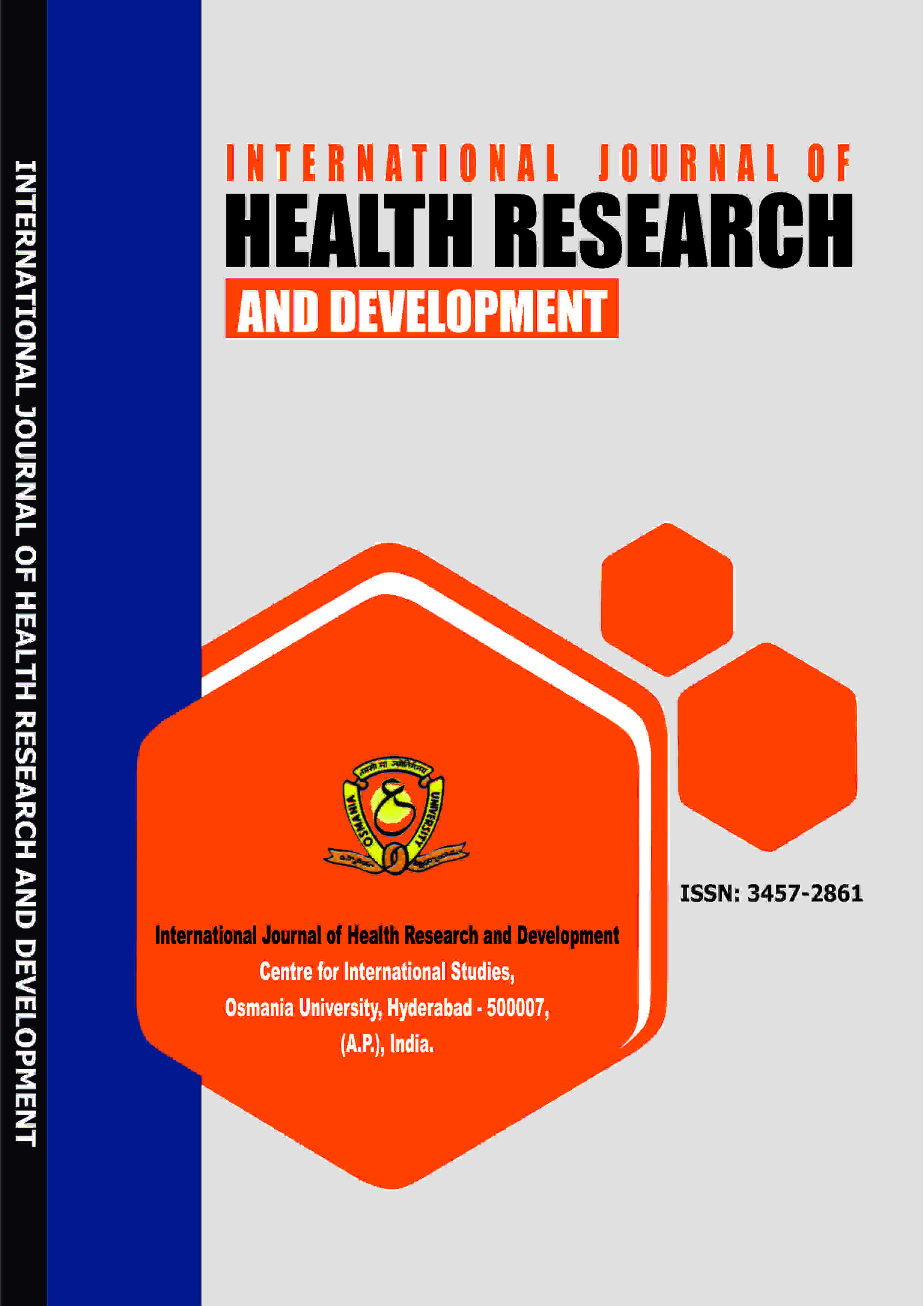INTERNATIONAL JOURNAL OF HEALTH RESEARCH AND DEVELOPMENT (IJHRD)
HDL FOR HEALTHY HEART
E-ISSN: 7883-6773
P-ISSN: 3457-2861
DOI: https://iigdpublishers.com/article/113
Today, doctors think about risk in broader terms. They evaluate HDL cholesterol levels in context, along with other risk factors. People with high blood triglycerides usually also have lower levels of the good kind of cholesterol, or HDL. Genetic factors, type 2 diabetes, smoking, being overweight and being sedentary can all lower HDL cholesterol. Women tend to have higher levels of HDL cholesterol than men do. LDL (bad) cholesterol: Since LDL is the bad kind of cholesterol, a low LDL level is considered good for your heart health. In the past, doctors relied on specific ranges for LDL. Today, doctors consider LDL levels as
one factor among many when evaluating cardiovascular risk. Hyperlipidemia and Atherogenesis leading to development of coronary artery disease is one of the potent reasons for mortality all over the world. In more than 500 research studies it has been proved that low HDL-cholesterol is one of the etiological factor for
development of atherogenesis. Since long green tea have had been used for raising HDL-cholesterol in ayurvedic medicine. We conducted the study on ethnic grounds that how much green tea can raise HDL cholesterol in our Pakistani citizens. Forty hyperlipidemic patients were selected from Ghurki Trust Teaching Hospital Lahore and divided in two groups with 20 patients in each group. Group-I was advised to take, six hourly 180 ml green tea prepared by conventional method for two months. Group-II was labeled as control, not to take green tea for 2 months. Their HDL- cholesterol was measured at day-0 and on day-60. HDL-cholesterol was measured by separating other lipoprotein fractions using chemical precipitation with divalent ions such as Mg2+, then coupling the products of a cholesterol oxidase reaction to an indicator reaction. After two months, it was observed that green tea consumption raised HDL-cholesterol 7.5 mg/dl, while control group’s HDL- cholesterol raised 0.8 mg/dl in this period. Mean values with SD and SEM were analyzed statistically by using SPSS version 22.0.0.0. Statistical significant was considered according to pvalue of changed parameter from day-0 to day-60. P-value of <0.001 was considered as significant and p-value of >0.05 was considered as non-significant change. After the research study it was concluded that green tea can raise HDL-cholesterol significantly and can be considered as negative risk factor for development of coronary artery disease.
Dur Muhammad Shaikh PhD
Lu X, Shi XT, Zheng JS, Yang J, Fu YQ, Huang T, Huang YJ, Li D. (2016). "Effects of green tea, black tea, and coffee consumption on the risk of esophageal cancer: a systematic review and meta-analysis of observational studies". JMSC;2(8):101-5.
Huang TH, Fu YQ, Huang YQ, Lu X, Min H, Wu QQ, Shi XT, Bian KQ, Zou XP. (2017). "Green tea and liver cancer risk: A meta- analysis of prospective cohort studies in Asian populations". NJMS;17(7):34- 7.
Min H, Zhung BV, Liu G, Mi XN, Zheng XX, Xu YL, Lu J, Huang XH. (2015). "Effects of tea intake on blood pressure: a meta-analysis of randomised controlled trials". MSJ;10(4):44-9.
Zheng XX, Xu YL, Li SH, Hui R, Wu YJ, Huang XH. (2013). "Effects of green tea catechins with or without caffeine on glycemic control in adults: a meta-analysis of randomized controlled trials". Am J Clin Nutr (Meta- Analysis);97 (4): 750–62.
Liu K, Zhou R, Wang B, Chen K, Shi LY, Zhu JD, Mi MT. (2013). "Effect of green tea on glucose control and insulin sensitivity: a metaanalysis of 17 randomized controlled trials". Am J Clin Nutr (Meta-Analysis);98 (2): 340–8.
